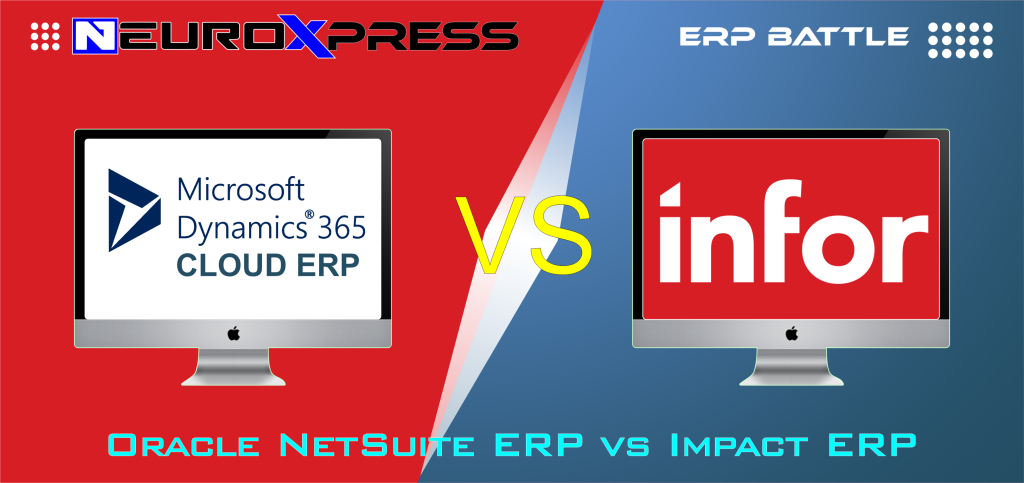Microsoft Dynamics 365 ERP vs Infor CloudSuite: Choosing the Right ERP for a Competitive Edge
🔍 Introduction: Microsoft Dynamics 365 ERP vs Infor CloudSuite
In the dynamic world of enterprise resource planning, two giants stand out for their flexible, intelligent business solutions: Microsoft Dynamics 365 ERP vs Infor CloudSuite. Whether you’re a growing enterprise seeking AI-powered insights or a legacy manufacturer looking to modernize operations, these two platforms offer contrasting paths to digital transformation.
But when it comes to Microsoft Dynamics 365 and Infor CloudSuite, which solution aligns better with your business goals?
This comprehensive comparison will help you decide based on your industry, operational complexity, scalability needs, and future vision.
🎯 Storytelling: The Dilemma of a Modern CFO
Janet, the CFO of a global food production company, was at a crossroads.
Her team was juggling disconnected systems, and real-time visibility was non-existent. When her CEO asked, “How much inventory is available across our European warehouses?”—the answer took hours.
Janet knew it was time for change. She narrowed her options to Microsoft Dynamics 365 ERP, with its integration into Microsoft’s ecosystem, and Infor CloudSuite, tailored to her industry with pre-built vertical tools.
Which path would future-proof their enterprise?
⚙️ Microsoft Dynamics 365 ERP vs Infor CloudSuite: Key Features Comparison
| Feature | Microsoft Dynamics 365 ERP | Infor CloudSuite |
|---|---|---|
| Deployment | Cloud, Hybrid, On-Premise | Cloud-first (AWS-hosted), Hybrid |
| Core Focus | Unified business apps with AI-driven insights | Industry-specific ERP (Manufacturing, Healthcare, etc) |
| Financial Management | Advanced, with real-time data and global capabilities | Strong core financials with vertical integration |
| Manufacturing & SCM | Available via Dynamics 365 SCM modules | Built-in, deep industry focus |
| AI & Analytics | Native integration with Microsoft Power BI & Azure AI | Coleman AI & integrated BI dashboards |
| Customization & Extensibility | Power Platform, low-code/no-code tools | Mongoose platform for custom apps |
| Third-Party Ecosystem | Microsoft AppSource, strong partner network | Infor Marketplace, solid but less extensive |
| User Interface | Modern UI, tightly integrated with Microsoft products | Clean UI, optimized for industry workflows |
✅ Pros & Cons
Microsoft Dynamics 365 ERP
✔️ Pros:
-
Seamless integration with Microsoft 365, Teams, Outlook
-
AI & data insights via Power BI & Azure AI
-
Modular approach with scalable architecture
-
Strong global compliance features
❌ Cons:
-
Customization may require Microsoft ecosystem knowledge
-
Licensing structure can get complex
-
Learning curve for full feature adoption
Infor CloudSuite
✔️ Pros:
-
Deep industry-specific features (e.g., automotive, healthcare)
-
Highly customizable with Mongoose framework
-
Built on AWS for performance & scalability
-
Focused workflows reduce training time
❌ Cons:
-
Smaller ecosystem than Microsoft
-
Integration with non-Infor tools may need extra work
-
May require consulting for implementation
🏭 Industry Fit: Who Should Use What?
| Business Type | Best Fit |
|---|---|
| Global enterprise with Microsoft stack | Microsoft Dynamics 365 |
| Healthcare or industrial manufacturing company | Infor CloudSuite |
| Retail & distribution with advanced reporting needs | Microsoft Dynamics 365 |
| Automotive manufacturer with strict compliance | Infor CloudSuite |
| Organization needing modular ERP rollout | Microsoft Dynamics 365 |
| Business seeking built-in industry tools | Infor CloudSuite |
📖 Mid-Storytelling: Janet’s Boardroom Moment
Janet presented both options to her executive team. The CEO leaned toward Microsoft Dynamics 365 for its seamless integration and future-ready features. But her VP of operations, a 20-year veteran in food production, was captivated by Infor’s deep industry workflows.
She paused, then smiled. “What if we choose a system that speaks our language on the production floor, and scales our ambitions in the boardroom?”
🚀 Scalability, AI, and Ecosystem Reach
-
Microsoft Dynamics 365 is ideal for companies wanting to harness AI, automation, and data intelligence at scale—especially those already using Microsoft apps.
-
Infor CloudSuite excels when deep vertical functionality is non-negotiable and speed-to-value matters in implementation.
🧠 Summary Decision Map of Microsoft Dynamics 365 ERP vs Infor CloudSuite
WHAT DRIVES YOUR DECISION?
|
----------------------------------------------------
| |
Microsoft Integration & Data Insights Industry-Specific Tools & Workflows
| |
Microsoft Dynamics 365 ERP Infor CloudSuite ERP
🔗 Helpful Resources
🏁 Final Verdict: Microsoft Dynamics 365 ERP vs Infor CloudSuite, Depth or Breadth?
-
Choose Microsoft Dynamics 365 ERP if your organization values powerful analytics, Microsoft ecosystem synergy, and modular ERP components that grow with your business.
-
Choose Infor CloudSuite if you’re looking for deep, out-of-the-box industry capabilities, especially in manufacturing, healthcare, or distribution.
The bottom line? Both solutions are leaders—but their strengths lie in different dimensions. Choose based on what your team needs today and how you want to evolve tomorrow.
